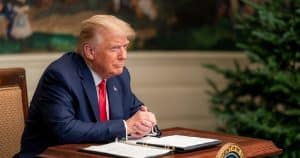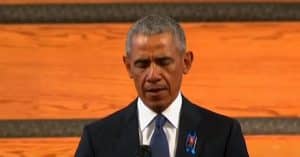Kennedy supports Trump's pro-life research policies
Robert F. Kennedy Jr. has made a clear stance regarding federal funding for certain types of medical research, sparking conversations around the nation. During his nomination hearing for the position of Health and Human Services Secretary, Kennedy declared his intention to reinstate a policy from the Trump administration era, that halts funds for NIH research that utilizes fetal tissue from elective abortions.
These remarks are a part of Kennedy’s approach to align with President Trump's pro-life initiatives, emphasizing ethical standards in scientific research.
In a hearing spearheaded by President Donald Trump, Kennedy addressed fellow lawmakers about the controversial subject of fetal tissue use. When prompted by Sen. Josh Hawley about his plan to restore a 2019 policy, Kennedy confirmed he would halt federal backing for any NIH projects that involve fetal material obtained through abortions. This decision would overturn the reversal made during the Biden-Harris leadership.
Kennedy Commits to Ethical Research
Kennedy's unambiguous commitment to limit federal research funding extends to ensuring stem cell research persists without the need for fetal material. In response to Sen. Maria Cantwell, Kennedy asserted his dedication to safeguarding research methods that only use umbilical cords. He reiterated that contemporary stem cell inquiries can thrive without involving fetal substances.
Furthermore, Kennedy aligned himself with Trump’s vision of humane reproductive health policies. Highlighting his support for legislation preventing federal monies from endorsing abortion services, he showcased a commitment to Title X policies that maintain ethical foundations in family planning efforts.
Title X and Abortion Policies Addressed
Alongside his views on federal research funding, Kennedy voiced his support for Trump’s structured stance on abortion under Title X. He echoed sentiments supporting state oversight concerning abortion regulations and discussed his agreement with the former president regarding the moral implications of abortion.
Kennedy also indicated that, if appointed, he would faithfully implement policies to terminate funding for abortions both nationally and worldwide. This mirrors Trump’s past goals of ending late-term procedures and bolstering exemptions for medical professionals with conscientious objections.
Senate Hearing Highlights Key Debates
The confirmation hearing underscored Kennedy's alignment with Trump's broader policy framework. Fellow members of the Senate utilized this platform to press him on his positions about the ethics and future of reproductive health science. As the nominee emphasized, his leadership at the Department of Health and Human Services (HHS) would prioritize President Trump's directives.
In addition to potential restrictions on abortion-related funding, Kennedy pledged to scrutinize the abortion pill’s safety. Advocates emphasized the importance of evaluating medications used in terminating pregnancies to ensure they meet safety standards.
Kennedy’s Nomination Draws Attention
Kennedy’s nomination attracted significant interest given Trump’s decisive policies and past controversies during his time in office. His declaration to support a second reinstatement of Trump’s administrative policies set a robust tone for potential changes within the HHS.
Not only did Kennedy manifest allegiance to Trump’s Title X, but he also emphasized a broader pro-life agenda. These plans align with Trump’s overarching goal to reposition the country’s moral compass regarding abortion and related health services.
Ethical Considerations in Scientific Research
The debate over fetal tissue research presents profound ethical questions, and Kennedy's clarifications during the hearing spotlight these issues. His assurance to balance scientific progression with ethical integrity captures both political and public scrutiny.
Kennedy’s proposal seeks to ensure equitable resources in medical inquiries while respecting ethical boundaries. This appeal holds considerable weight in steering future legislation and scientific practices under Trump’s influence, should Kennedy’s nomination be confirmed.
Legislature Challenges and Fetal Research
Despite the polarizing nature of this issue, Kennedy’s assurances to protect and promote ethically guided research practices received varied reactions from Senate members. His approach points to a future where groundbreaking research does not compromise moral standards by resorting to fetal tissue sources.
As the nomination process continues, Kennedy's candidacy gravitates around aligning the HHS’s mission with Trump’s conservative policies, highlighting ethical advancements, and exploring new medical fronts. This deliberate course of action underlines critical discussions within the legislative landscape, as the nation continues its discourse on ethical research practices.




